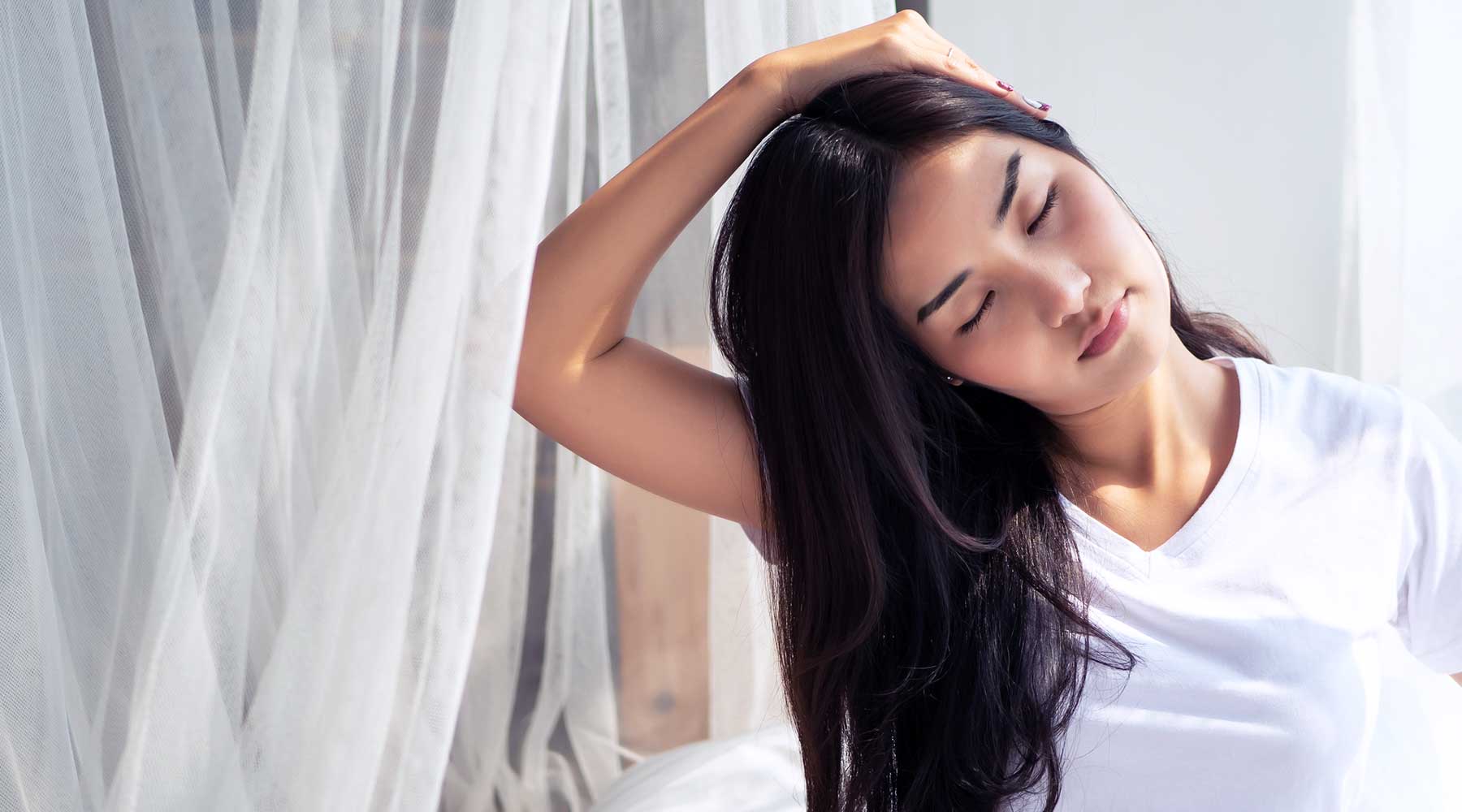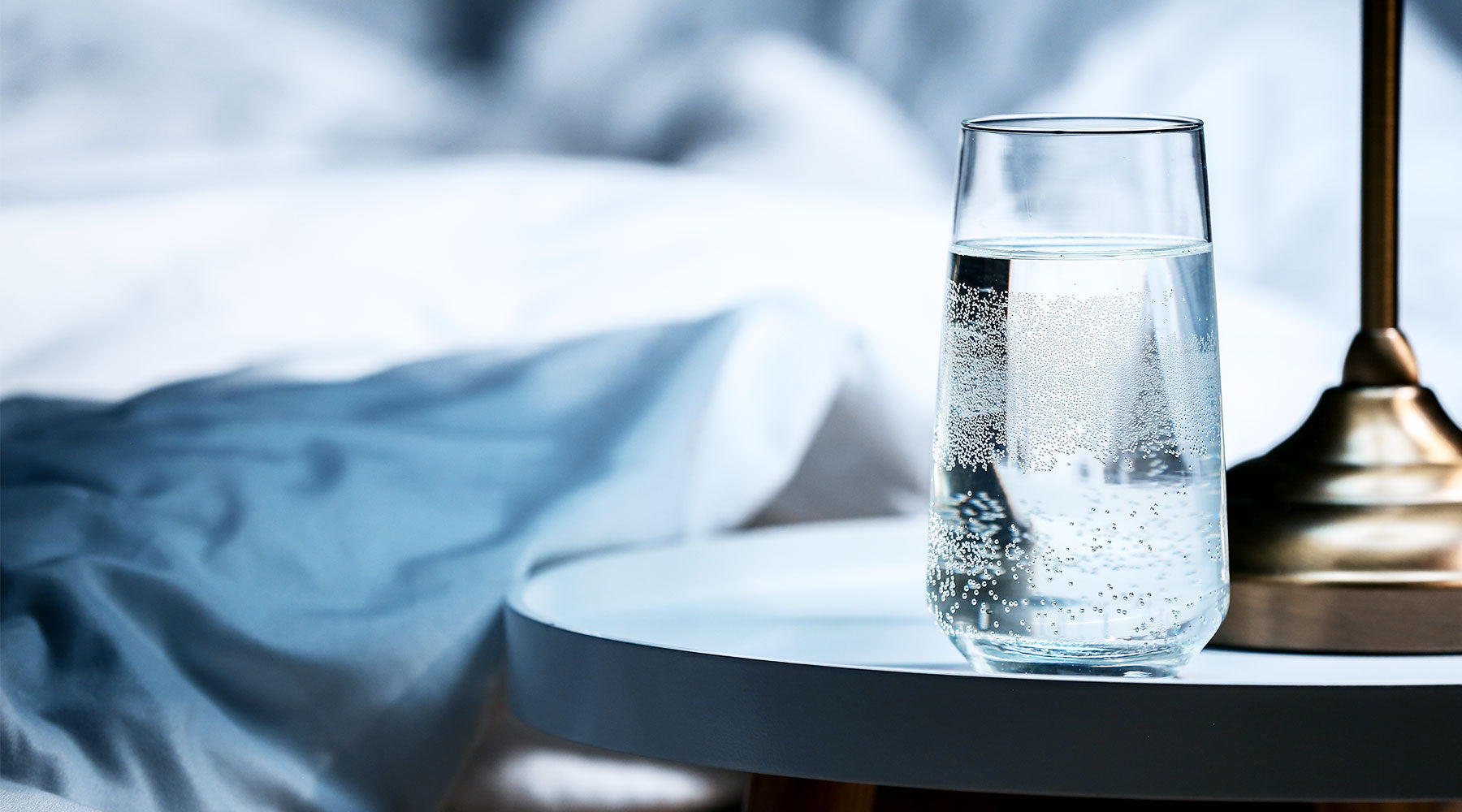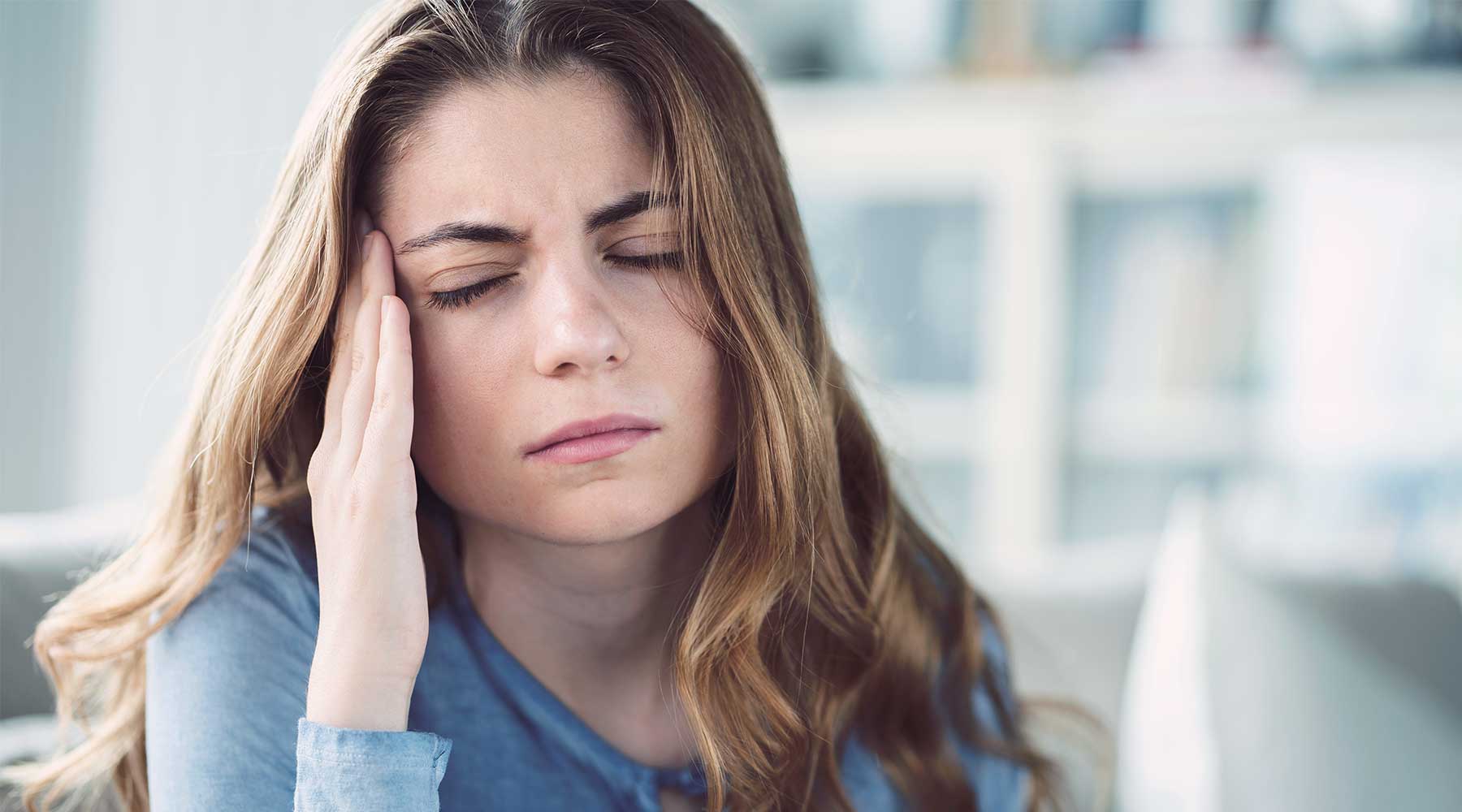
Neck pain after sleeping
Millions of people suffer from neck pain and tension after sleeping and start the day feeling less than refreshed despite getting enough sleep. Here you can find out what causes painful muscle pain in the morning and what simple tips you can use to prevent tension or provide quick relief.
Table of contents
- neck pain in the morning
- Causes of neck pain after sleeping
- Tips for relieving neck tension after getting up
- preventive measures
- Tips for Immediate Help
- Conclusion
1. Neck pain in the morning
Neck pain and tension are widespread and are a common phenomenon, especially in the morning. It is estimated that one in three people suffer from painful tension in the neck at least once a year and we all know the feeling of waking up with a stiff neck, unpleasant pain when moving or even a headache and having to start the day more exhausted than refreshed. As a result of the uncomfortable night, we not only suffer from oppressive, stabbing or pulling neck pain during the day, but also feel physically restricted or struggle with the consequences of poor sleep, for example fatigue, lack of energy or problems concentrating and paying attention. An uncomfortable night also affects sleep itself, because the tension in the morning is often not only the result of a lack of regeneration, but can also be a major reason why we do not get the rest we deserve despite a sufficiently long night's sleep.
The causes of muscular tension in the neck area are varied and also depend on whether the symptoms already exist before going to bed or only appear after sleeping.
2. Causes of neck pain after sleeping
Incorrect sleeping position / unhealthy sleeping posture
One of the most common causes of neck pain after sleeping is an unsuitable sleeping position at night. Staying in a certain position for too long can have a negative effect on our back and neck. A natural and healthy position of the body, and especially the head, neck and shoulder area, is therefore essential for restful sleep and makes a decisive contribution to our muscles being able to relax at night. Only then can the muscle cells and muscle tissue be rebuilt during sleep and damage to cells or fibers repaired. For a healthy sleeping position, the shoulders and cervical spine should be at right angles to each other and the head and spine should form a straight line down to the pelvis.

Our pillow, mattress and our preferred sleeping position determine the position in which we spend the night and how our sensitive cervical spine is positioned during sleep. The wrong pillow and a mattress that is too firm or too soft can lead to bending or compression of the cervical vertebrae, increased pressure on the lumbar spine and uncomfortable muscle tension. This means that sleep is less restful and neck tension in the morning is almost inevitable.
Lack of movement/mobility
We humans are simply not designed to sit still for hours and without movement our muscles cannot receive enough oxygen and nutrients.A lack of exercise or poor posture in everyday life often means that our joints, muscles, ligaments and tendons do not function optimally and stiffness, tension or pain occur more quickly. This not only affects our well-being, but also our sleep! Because a lack of physical relaxation, especially at night, gets in the way of sleep itself and all the important recovery processes. Numerous studies also show that regular exercise and physical activity during the day have a positive effect on our sleep and help us fall asleep. You can find out more about this in this article our sleep magazine.
Stress & Lack of Relaxation
We all know that lack of relaxation and persistent stress have a negative impact on sleep, the Fall asleep and disrupt the natural sleep process. This also prevents the energy stores in our muscle cells from being filled and the muscle tissue from regenerating sufficiently. In addition, inner tension, restlessness, anxiety and depression can directly contribute to tension and tension in the neck muscles and lead to pain in the neck and head area even before going to bed.
Poor sleeping environment
An unsuitable sleeping environment and drafts encourage the development of colds and can also cause painful muscle tension. At night we lose a lot of heat and moisture through our skin and our breathing. When a cold draft hits sweaty or damp skin, it can quickly lead to a stiff neck and painful blockages, especially in summer or when using air conditioning and fans.
3. Tips for neck pain after getting up
preventive measures
#1 Keep moving
Depending on your daily routine, job or health, it is not always easy to get enough exercise during the day. To prevent muscle tension or joint stiffness, you should still try not to remain in a certain position for too long and especially avoid sitting or standing for hours. This is best achieved by regularly taking short breaks, walks or sport into our everyday lives and take the stairs more often instead of the elevator.
#2 Reduce stress
Stress and inner restlessness prevent relaxation in the evening and quickly lead to a tense posture, which causes tension and blockages overnight. It is therefore particularly important in the evening to leave the stress of everyday life behind so that body and mind can calm down and slowly prepare for sleep. You can find some tips for relaxing before going to bed here read it.
#3 Choose the right pillow

A healthy and comfortable sleeping position is a key factor in feeling refreshed in the morning. The pillow determines the position of our head while we sleep and, ideally, ensures that our sensitive cervical spine is well positioned and protected at night. This allows the muscles, ligaments and tendons to relax and reduces the pressure on our bones and joints, enabling pain-free sleep and preventing the development of headaches, stiff muscles or severe tension in the head, neck and shoulder area.
We give you helpful tips on how to find the perfect pillow for you in the following articles in our sleep magazine: Your Pillow Guide | The optimal pillow height | Which sleeping position is best?
Or start our practical pillow advisor and find out in less than 30 seconds which of our
Tips for immediate relief from neck pain
#1 Heat & Massages
Heat and gentle massages promote blood circulation and loosen the muscle tissue. This allows stuck fascia and muscle fibers to be relaxed and painful tensions to be gently released. You can treat neck pain in the evening before going to bed or if you have acute pain in the morning with a warming balm, a small cherry stone pillow or a hot bath as well as gentle massage movements.
#2 Stretching, loosening and stretching exercises


Light stretching or loosening exercises can not only be used as a preventative measure, but can also help to activate the body immediately after getting up and slowly warm up the muscles after the night's inactivity. A short stretch in the morning can therefore be very effective in mobilising the spine and loosening tense muscle tissue. This also slowly increases circulation, boosts blood circulation and metabolism, and allows us to wake up and become active more quickly. And even if you don't have much time after getting up: some quick basic exercises can be easily incorporated into your (evening and) morning routine and can simply but effectively help combat nasty neck pain after sleeping.
4. Conclusion
-
Neck pain in the morning is widespread and is often caused by an unhealthy sleeping position, an unsuitable pillow, a lack of daily exercise, stress or a poor sleeping environment.
-
To prevent neck pain in the morning, you should keep moving during the day, reduce stress and adopt a healthy sleeping position at night with the right pillow.
-
Heat treatments, massages and simple loosening and stretching exercises help to relax in the evening and to combat acute tension after sleeping after getting up.
Best regards and see you soon!



1 comment
Die Ausführungen beschreiben meine Beeinträchtigung sehr stimmig.
Ich werde Ihre Hinweise und Anregungen zu Herzen nehmen.
Andreas Müller
Müller,Andreas
Leave a comment
This site is protected by hCaptcha and the hCaptcha Privacy Policy and Terms of Service apply.